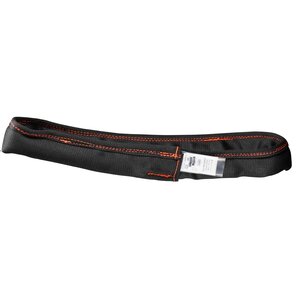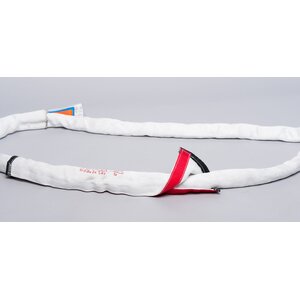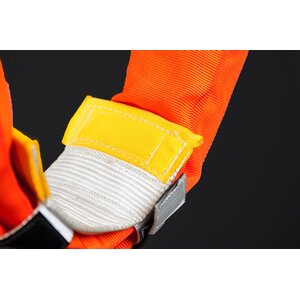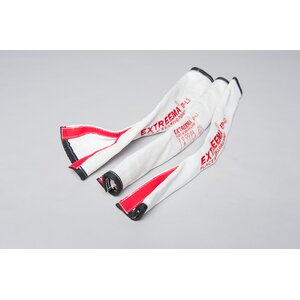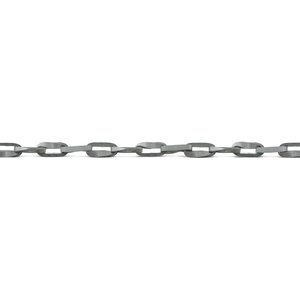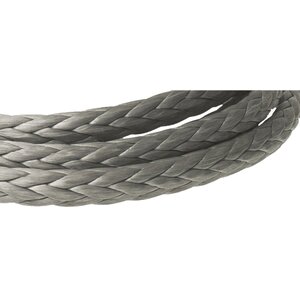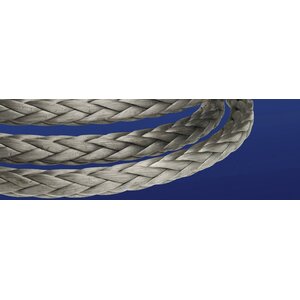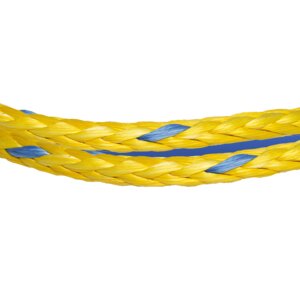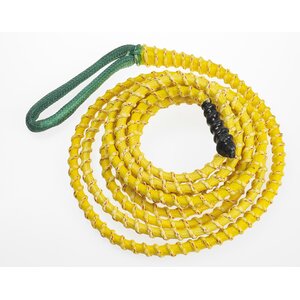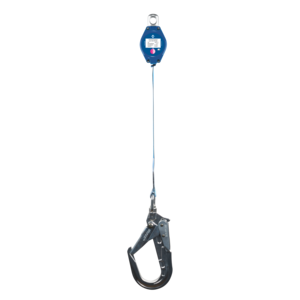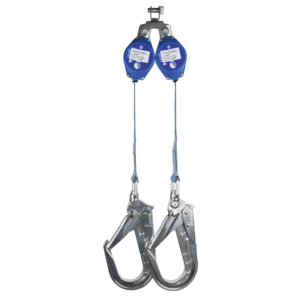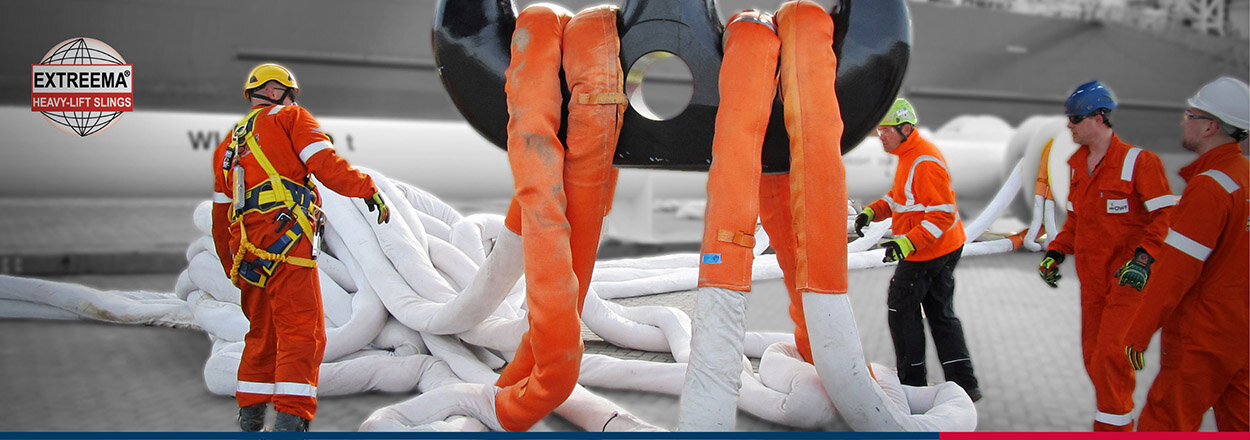
What is Dyneema® really?
CERTEX Danmark A/S has an updated range of roundslings and wear protection in the material Dyneema®. But what is Dyneema® really and why should you as a customer choose to buy a roundsling in Dyneema® instead of polyester? Our product manager explains the concepts and the benefits.
What is Dyneema®?
Dyneema® is a type of HMPE fiber, which stands for High Modulus PolyEthylene. Dyneema® is officially called Ultra-High Molecular Weight Polyethylene (UHMWPE). Fiber with the Dyneema® brand is manufactured by the Dutch company DSM and it is marketed as the world's strongest fiber. Dyneema® is the only synthetic were strength characteristics increase at lower temperatures and thus you have not to include extra factors.
Are all HMPE fibers the same?
No, there are different manufacturers of HMPE fiber and depending on how the material is treated it has different properties. Only Dyneema® has a production process that refines the HMPE fiber by both stretching it and twisting it to different temperatures, giving it an incredible strength. From other HMPE fibers is not much to tell and the long track record that Dyneema® has for example regarding the influence of UV light, creep and chemicals, is missing.
"Dyneema® is manufactured by the Dutch company DSM and it is marketed as the world's strongest fiber”
What makes HMPE so special?
From a weight perspective, the HMPE fiber is 15 times stronger than steel and when using a Dyneema® or general HMPE lifting sling you reach close to, and in some cases even above, the steel wire's maximum load, while you get the benefits of a sling that is about 80% lighter than the corresponding wiresling. This means that it is easy to handle lifting tools made of HMPE, even when compared to slings made of polyester. In addition, HMPE has high wear resistance and withstands cutting wear better than similar products made from e.g. polyester. In addition, HMPE also has high resistance to UV radiation and chemicals. Also, HMPE is 2,5 times lighter and with smaller diameter than polyester.
CERTEX Danmark A/S sells Extreema® products, what is that?
Extreema® is the brand that the supplier Lift-Tex® has on its products that are primarily manufactured of Dyneema®. These products thus fulfill all the properties that Dyneema® stands for.
You can also buy some Extreema® products made from the simpler HMPE fiber, which is not marketed as Dyneema®. This can be done to lower the costs. The simpler HMPE fiber is also manufactured by DSM, which guarantees high quality. However, the disadvantage of such a product is that the dimension becomes somewhat coarser than with Dyneema® because you simply need more fiber to reach the same maximum load.
When should I choose a sling with Dyneema®?
We always recommend a sling with Dyneema® when lifting more than 15 tons. A polyester sling is heavier and coarser than the corresponding HMPE/Dyneema® sling regardless of the maximum load, and with loads over 15 tons a polyester sling becomes difficult to handle. The fact that the sling of HMPE/Dyneema® has a higher price than the equivalent in polyester is in most cases offset by a significantly longer service life and an improved working environment. Since slings made of HMPE/Dyneema® are smaller in dimensions than the corresponding ones in polyester, in many cases you can reduce the number of slings in the workplace, which could very well mean that you make a long-term savings! For example, up to 10 ton you can reduce the number of slings to two, 3 ton XS sling that has the same size as a 1 ton polyester roundsling, 10 ton that has the same size as a polyester roundsling 4 ton. Two slings that will cover the whole range what makes it more sustainable and environmentally friendly especially with the new bio based Dyneema® fiber.
Another advantage of HMPE/Dyneema® is that it floats in water. That is why we often recommend it in the marine environment. It is not uncommon for the sling to end up in the water and being able to pick it up gives both an economic saving and is better from an environmental point of view, not to waste in the seas. Also, polyester will absorb water which makes it even heavier and when using outside in the winter it might freeze to ice in your polyester sling which makes it even more dangerous to work with.
"We always recommend a Dyneema® sling when lifting loads of more than 15 tons"
How about wear protection? Is it needed?
According the NEN-EN 1492 norm wear protection should always be used in combination with a lifting sling. It protects both the sling and the load. A wear protection in Dyneema® is very durable and can advantageously be used for Dyneema® or Cordura® slings, but also to extend the service life of standard polyester slings. Since the sling in HMPE/Dyneema® has a higher price, we also want them to last a long time. It is better to replace the wear protection than replacing the whole lifting sling! Besides it is possible to repair certain damages on Extreema® roundslings by trained personnel.
We always recommend using wear protection.
But the steel wire rope and chain sling then? Should I stop buying it?
No, absolutely not! HMPE/Dyneema® is a fantastic material, but it is not a universal solution but rather a complement. A lifting tool of fiber provides a light lifting tool, which is a great advantage. However, warmth and sharp edges should still be taken in consideration, although there are ways to solve that too.
Chain and wire rope slings still have their undisputable advantages, but the development is fast and how high-performance fiber will be used in the future remains to be seen. If you are not sure if HMPE/Dyneema® can be something for your business, do not hesitate to ask us!
Comparison of round slings with cores made of different materials
| Material | Dyneema | HMPE | Aramid | Polyester |
| Strength to weight ratio (cN/dtex) | 35,1 | 32,5 | 21,8 | 8,2 |
| Chemical resistance | Excellent (1) | Excellent (2) | Poor | Moderate |
| Temperature range (°C) | -180 - +70 (3) | -180 - +70 (3) | -70 - +200 (4) | -40 - +100 |
| Capacity range (MBL metric ton)) (5) | 21 - 4200 | 21 - 4200 | 14 - 350 | 7 - 1400 |
| Length (m) (6) | 0,5 - 65 | 0,5 - 65 | 0,5 - 65 | 0,5 - 65 |
| Specific gravity | 0,975 | 0,975 | 1,45 | 1,38 |
| Moisture resistance | Excellent (7) | Excellent (7) | Poor | Poor |
| Elongation at use (%) (8) | 0,5 - 1 | 0,5 - 1 | 0,6 - 1 | 3 - 5 |
| Elongation at break (%) | 3 - 4 | 3 - 4 | 4 | 10 - 14 |
1) Including extensive datasheets. Specific chemicals can be tested on request at supplier.
2) Excluding extensive datasheets.
3) Strength decreases at higher temperatures. The maximum temperature for long exposure is 70 °C. More detailed information is available upon request.
4) Remains full strength at max. temperature of 200 °C.
5) Capacity in a straight pull configuration.
6) Length depending on WLL. Range is approximate. Higher/lower on specific requests.
7) Does not absorb water.
8) Based on safety factor 7.
Products with Dyneema® fiber
Below you see those of our products in which Dyneema® fiber is part of the material.
 Do you have any questions?
Do you have any questions?
If you have any questions, please send us a message and we will be happy to help.
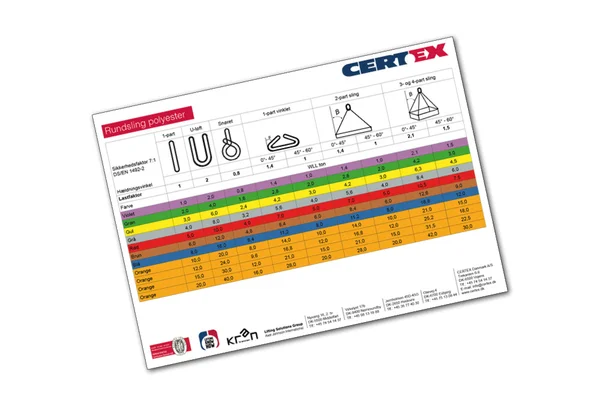
Load table round slings
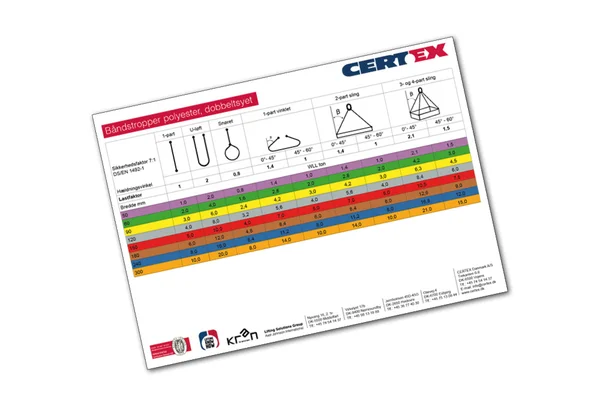
Load table webbing slings
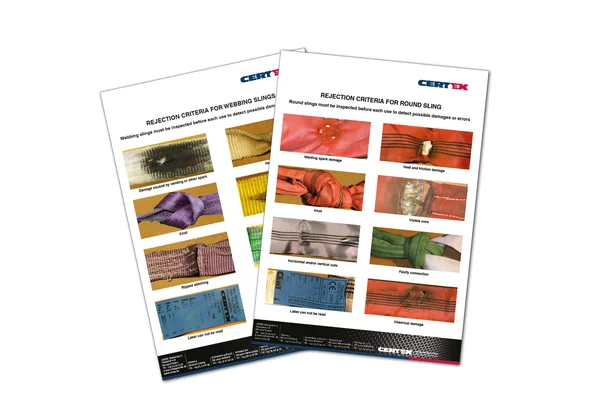
Rejection criteria for textile slings
Good to know - about textile slings
Read here about safe load handling with textile slings, coupling methods, safety when lifting and much more useful information about the use of textile slings.
Color coding of polyester slings
Learn why polyester slings have different colors, and what their colors indicate.
The benefits of Grade 10
This is why it can be an advantage to choose Grade 10 chains and components.

